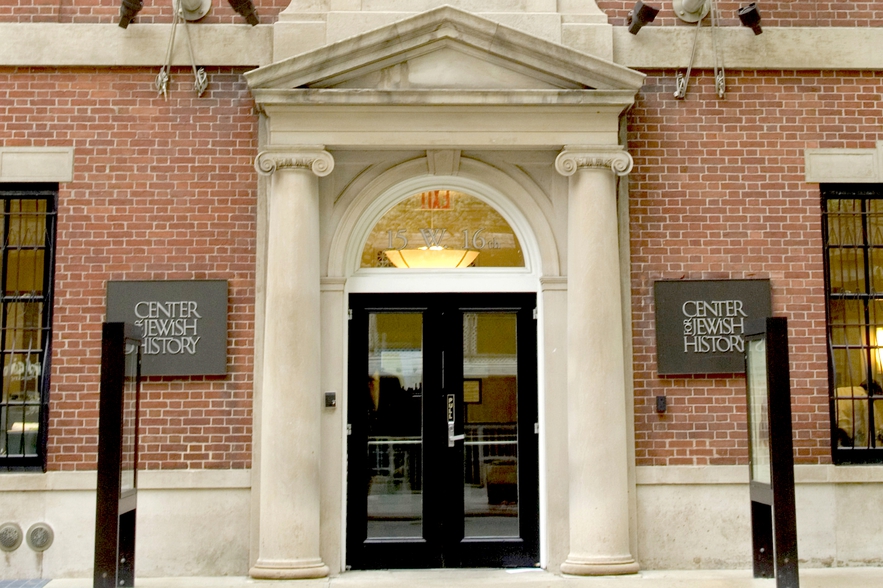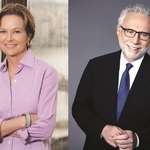The Rosenburg Files—Former Nazis in the Post-War German Justice Ministry

- Tag/Uhrzeit
- –
- Ort
- Center for Jewish History (map)
15 W. 16th St.
New York, NY 10011 - Format
- Persönlich
When the Allied forces handed over the reins of government to the newly minted Federal Republic of Germany in 1949, a new Justice Ministry assumed responsibility for interpreting and enforcing the law in a nation whose former legal system had been perverted by National Socialist ideology. New research commissioned by the Justice Ministry shows that this was hardly a fresh start for the German justice system, however. Justice Minister Heiko Maas and a panel of scholars will discuss research that shows that an alarmingly high percentage of officials tasked with prosecuting the crimes of the Nazis and compensating their victims were complicit in those crimes themselves as former Nazi party members or sympathizers.
Co-presented with AJC NY.
Featuring
Speaker:
- Heiko Maas—German Federal Justice Minister
Moderator:
- David G. Marwell—Director of the Museum of Jewish Heritage, former Chief of Investigative Research at the US Department of Justice
Panelists:
- Manfred Görtemaker—Professor of History, University of Potsdam, Co-Chair of the Independent Historians’ Commission (IHC) that conducted the research
- Christoph Safferling: Professor of Law, University of Marburg, Co-Chair of the IHC
- Rebecca Wittmann—Professor of History, University of Toronto
Background
Housed in the “Rosenburg” a Romanesque-revival palace on an idyllic estate in the new capital of Bonn, the new German Justice Ministry was initially led by Thomas Dehler, a lawyer with anti-Nazi bona fides. Nevertheless, the historians who examined the personnel records of the Justice Ministry say that the Rosenburg was hardly the site of a fresh start for the German legal system. The Independent Historians‘ Commission appointed to conduct the research found that in 1950, 47 percent of all officials with management responsibility had been members of the Nazi party. A National Socialist resume was also apparently no impediment to career advancement; in the 1960s, 60 percent of department heads were former NSDAP members.
The continued presence of former Nazis at high levels in the Justice Ministry is also reflected in the way it pursued vital aspects of its mission. For example, virtually all people convicted of Nazi crimes were pardoned by 1958, and the judgments of the infamous Volksgerichtshof (National Socialist People’s Court) and Courts Martial were not fully rescinded until the adoption of new federal Laws in 1998 and 2002. After the Nuremburg trials, few of the lawyers and judges responsible for draconian and arbitrary sentences under the Nazi regime were held accountable, and elements of the Nazi criminal code remained on the books for decades.
Sixty-five years after the founding of the Federal Republic of Germany, there is no doubt that the reconstruction of a German justice system that protects the rule of law and civil rights was ultimately successful. This reckoning with the dark chapters of the BMJ’s early history was launched by former Justice Minister Sabine Leutheusser-Schnarrenberger in 2012 as an expression of Germany’s commitment to democracy. It is the second such study by a German Federal Ministry, after the Foreign Office launched its own historians’ commission in 2005, the findings of which were presented at Leo Baeck Institute in 2012.
Panelists
David G. Marwell is the Director of the Museum of Jewish Heritage – A Living Memorial to the Holocaust and a specialist in the prosecution of Nazi war crimes. He served as the Chief of Investigative Research at the U.S. Department of Justice, Office of Special Investigations, where he conducted historical research in support of prosecution of Nazi war criminals living in the United States. He also played a major role in the Justice Department’s investigations of Klaus Barbie and Josef Mengele. From 1988 to 1994, Dr. Marwell was the Director of the Berlin Document Center, where he managed the center’s 25 million Nazi-era personnel files, and subsequently oversaw the transfer of the center’s administration to the German government. Prior to coming to New York, Dr. Marwell was the Associate Director for Museum Programs at the United States Holocaust Memorial Museum in Washington, D.C.
Manfred Goertemaker is Professor of Modern History at the University of Potsdam and an annual Visiting Professor at the Dipartimento di Politica, Istituzioni, Storia of the Università di Bologna since 2005. He was Vice Rector of the University of Potsdam in 1994-95 and Chairman of the Senate in 2001-04. He was Visiting Professor at Duke University in 1995, and at Dartmouth College in 1999, and Visiting Fellow at St Anthony’s College of the University of Oxford in 2002-03. He is chairman of both the Academic Advisory Council of the Militärgeschichtliches Forschungsamt (Research Office for Military History) and the Beirat für Museumsfragen der Bundeswehr (Advisory Council of the Bundeswehr for Museum Questions). He is also a member of the Academic Advisory Council of the Point Alpha Foundation and was a member of the Academic Advisory Council of Memorium Nürnberger Prozesse (Memorium Nuremberg Trials) in 2006-2010.
Christoph Safferling is Professor of Criminal Law, Criminal Procedure, International Criminal Law and International Law at Philipps University of Marburg and Director of the Marburg Research and Documentation Centre for the War Crimes Trials. He is also a Consultant to Nuremberg Higher Regional Court on “Nuremberg Trials” issues and Whitney R. Harris Fellow at the Robert H. Jackson Center, Jamestown, NY since 2005. He was a Member of the Academic Advisory Council of Memorium Nürnberger Prozesse (Memorium Nuremberg Trials) in 2006-2010, and is spokesperson for the Founding Commission of the Internationale Akademie Nürnberger Prinzipien (International Academy Nuremberg Principles).
Rebecca Wittmann is Associate Professor of History at the University of Toronto. Her research focuses on the Holocaust, postwar German trials of Nazi perpetrators and terrorists, and German legal history. Her book, Beyond Justice: The ‘Auschwitz’ Trial (Harvard University Press, 2005) won the Fraenkel Prize in Contemporary History. Her current project, “Nazism and Terrorism: The Madjanek and Stammheim Trials in 1975 West Germany” investigates the cultural and political mood in 1970s West Germany through a comparison of Nazi and Left-Wing terrorist trials.
